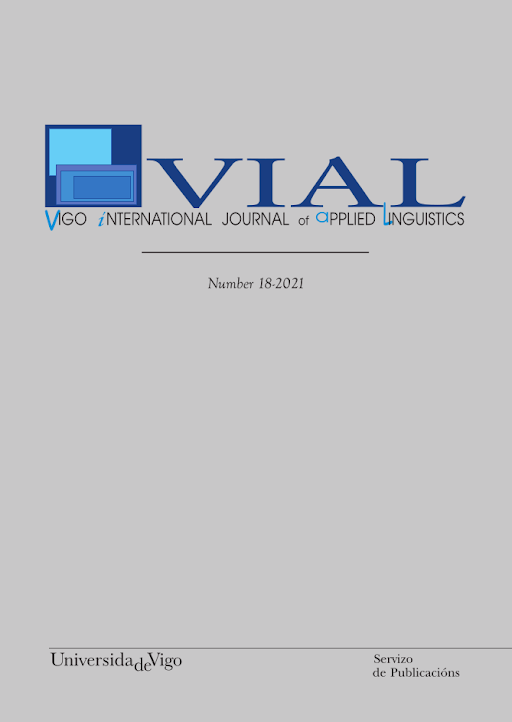Agreement morphology errors and null subjects in young (non-)CLIL learners
DOI:
https://doi.org/10.35869/vial.v0i18.3365Keywords:
CLIL, L2 English, Primary Education, inflectional morpheme error, null subjectAbstract
There is a wealth of studies on L2 English acquisition in CLIL contexts in Spain, but most have underexplored the potential impact of CLIL in the longer run on the morphosyntax of earlier starters from monolingual regions. This paper fills this gap by exploring agreement morphology errors and subject omission in the oral production of Primary Education English learners from the Spanish monolingual community of Cantabria. The sample investigated consists of the individual narration of a story by learners in two age-matched (11-12 year-olds) groups, one CLIL (n=28) and one non- CLIL (n=35). The results show no statistically significant differences between both groups for the provision of specific linguistic features at a younger age, though some evidence also points to a subtle effect of additional CLIL exposure. Both groups show moderately low rates of null subjects; they omit affixal morphology (*he eat ) significantly more frequently than suppletive inflection (*he _ eating) and they seldom produce commission errors (*they eats). Interestingly, non-CLIL learners show far greater rates of omission with auxiliary be than copula be and frequently use the placeholder is (*he is eat), which evinces an earlier stage of acquisition than that of CLIL learners.
Downloads
Downloads
Published
Issue
Section
License
Revistas_UVigo es el portal de publicación en acceso abierto de las revistas de la Universidade de Vigo. La puesta a disposición y comunicación pública de las obras en el portal se efectúa bajo licencias Creative Commons (CC).
Para cuestiones de responsabilidades, propiedad intelectual y protección de datos consulte el aviso legal de la Universidade de Vigo.



